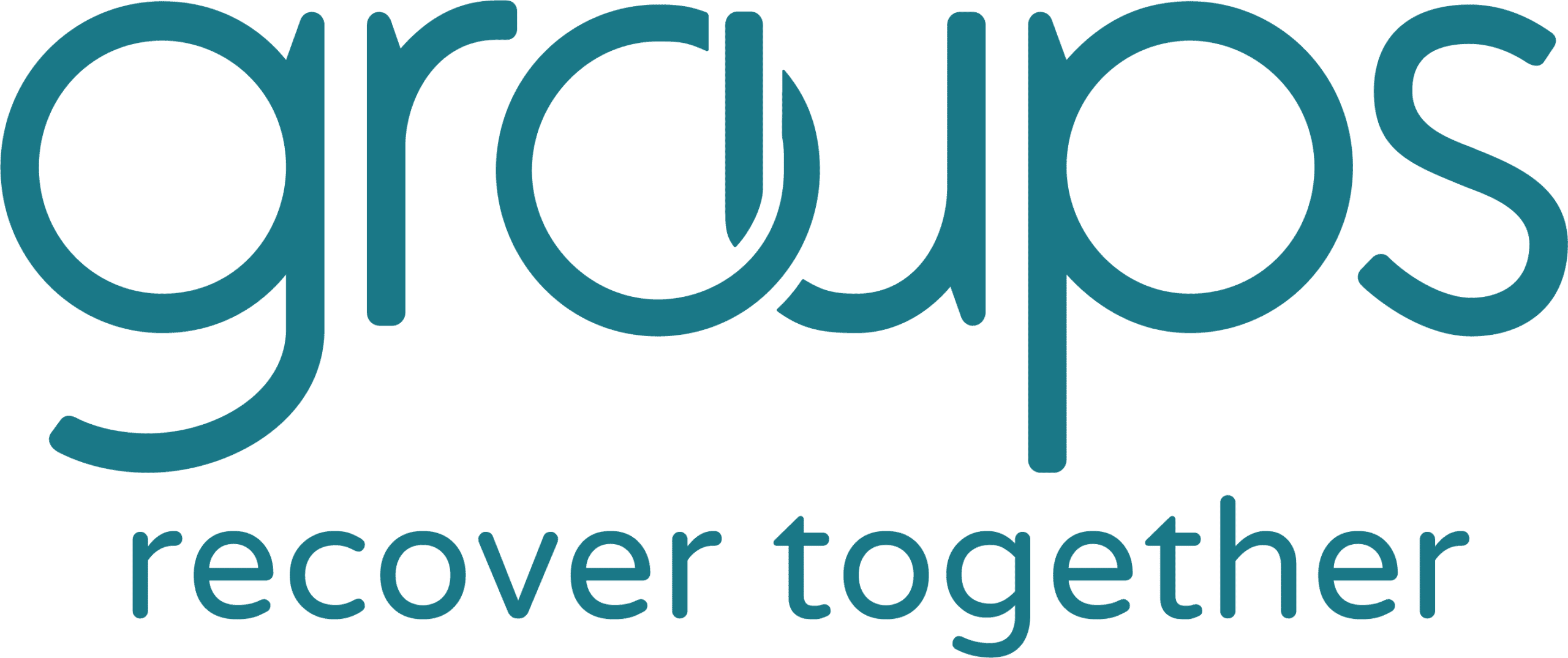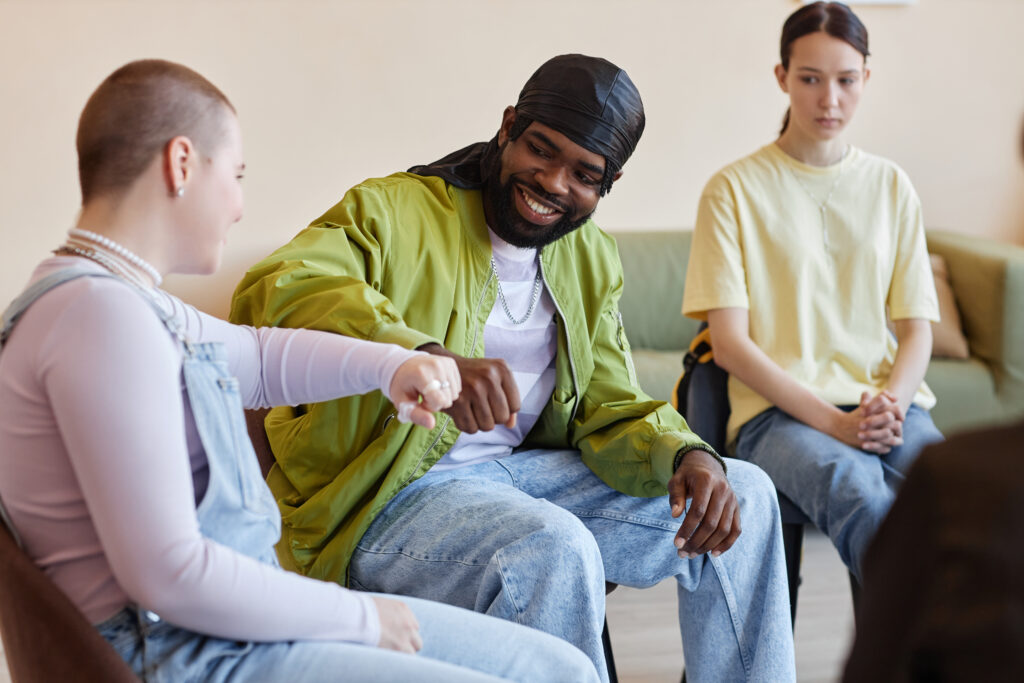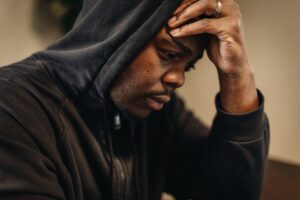Everyone’s experience with opioid use is different – and their path to recovery should be, too. Medication for Opioid Use Disorder (MOUD), like Suboxone, is considered the gold standard and first line of treatment for opioid addiction. Research shows that combining medication with behavioral therapy offers the most effective approach to long-term recovery.
That’s why at Groups we prescribe medication like Suboxone along with weekly group therapy sessions facilitated by a licensed substance use disorder (SUD) counselor. We combine research-backed treatment methods to create personalized recovery plans for each of our members. We offer in-person treatment and telehealth options in states across the country, and we’re continually expanding.
Our licensed counselors use a variety of methods to support each person with their unique recovery goals and challenges. Substances are often used as a coping mechanism, which means other concerns may be underneath their use. For some people, it’s past trauma. For others, it’s relationship difficulties, living in areas with limited resources, and more. Our team is equipped to help people address whatever is at the root of their substance use to help them achieve long-term success.
In this post, we’ll explore eight types of therapy you might experience during group sessions at Groups – each designed to support your recovery from opioid use disorder (OUD).
8 therapies that help us support members with opioid use disorder
We use structured techniques in weekly group therapy to meet each member where they are and make sure that they get the comprehensive care they need. Many of these techniques are based on cognitive behavioral therapy (CBT) and other popular treatment methods. We also help people learn how to regulate their emotions using anger management techniques and how to prevent using again.
Our highest levels of care follow the Matrix model. This model integrates different treatment methods into one experience. Members meet with their counselors as a group, with individual appointments available as needed.
The following are eight techniques and learnings that our counselors use as part of group facilitation to support members with opioid use disorder:
-
Motivational interviewing
Motivational interviewing empowers you to realize how you can change your life for the better, on your own terms. The therapist balances active listening with sharing information and advice. They begin by asking open-ended questions and getting curious about your thoughts, values, and motivations. Then, they help you recognize your strengths and best qualities. The final steps are considering different possibilities and points of view, problem-solving, and creating a plan of action.
-
Relapse prevention
Relapse prevention helps you see using again as a multistep process. You can learn to recognize triggers and behaviors that come before potentially using again. With a therapist, you can work on relaxation techniques and develop your own strategies to stop the possibility of using again before it happens. Making positive life changes, asking for help, and practicing self-care are important parts of relapse prevention. The values of honesty and integrity help ensure that the prevention process will work.
-
Cognitive behavioral therapy (CBT)
CBT is a structured approach to understanding your thoughts and feelings and how they affect each other. It’s a flexible process that can be modified for different goals and situations. The therapist asks questions to help you reflect and notice cause-and-effect relationships. As you develop your awareness, you can start to make more intentional decisions about your feelings and how you respond to things that happen to you. Many of our counselors are trained in CBT techniques, though not all hold a formal CBT certification, which requires a specific credentialing process. Still, you’ll benefit from their experience and guidance in using CBT-informed strategies.
-
Trauma-related counseling
Trauma-related counseling is about understanding the impact of trauma and not re-triggering someone. Our counselors are sensitive to the different ways trauma can affect a person’s life, behavior, and thought processes. We work on building safety and trust so our members can understand their trauma and start to take their power back. You can’t undo the things that have happened to you. However, once you accept those realities, you can put them behind you and ground yourself in the here and now. Chances are, you’ve already taken some big steps toward healing.
-
Brief intervention
Brief intervention is a quick but impactful form of therapy. In four sessions or fewer, this approach helps you understand the harm of your behaviors in a nonjudgmental way. Then it helps you start taking steps toward meaningful change. You’ll identify your own goals in the interest of your safety and reducing the risk of harm. It’s made up of six elements summed up in the acronym FRAMES. The elements are feedback, responsibility, advice, menu for change, empathy, and enhancing self-efficacy.
-
Anger management
Anger is a natural part of life. It’s our response to it and our behaviors that can be toxic or unhealthy. Oftentimes, substance use and anger go hand in hand. Like relapse prevention, anger management promotes awareness of anger before it gets out of control. It helps you practice techniques to process and defuse your anger. It takes some reframing as well as problem-solving and communication skills. Ultimately, people start to recognize the things they can and can’t control. Then they can do what’s in their power to be responsible for their anger.
-
Contingency management
Contingency management acknowledges that abstinence in itself may not feel very rewarding. There’s plenty of evidence that our decisions are based on our past choices and the results they produced. Contingency management helps people see and appreciate the rewards of ending opioid use. It also includes points or vouchers that can be redeemed for tangible rewards.
-
Group therapies
You can probably tell from our name that groups are a big part of what we do. Our support groups are based on community reinforcement. As much as the counselor is there to support and guide the conversation and check in with each member, members also rely on each other for support and encouragement to continue positive life changes as they grow in recovery.
What kind of experience can I expect at Groups?
First, you’ll meet your Recovery Support Specialist and a licensed counselor for a virtual welcome appointment. They’ll ask you for a urine sample, but it’s OK to test positive. We only use the results to help us understand your needs and make treatment decisions. Your care providers will ask some questions to get to know you and learn about what you want to accomplish in treatment. They’ll make recommendations and work with you to create a plan you both agree with. Most of our members receive a prescription for Suboxone, and we also offer Narcan (naloxone) with every prescription.
Once you complete the intake process and receive your first prescription that you can pick up from your pharmacy, you will be assigned a weekly group appointment that works for your schedule. You can attend these appointments in person if you have an office nearby or virtually to accommodate your needs and schedule. Our programs include urine testing. We don’t use judgment or shame to make people feel bad for using. We try to create a safe space for members to be honest about what they’re going through. As our members test negative for more weeks in a row, their results become a record of their success.
As a bonus, here are some of the books we use in our programs:
Find out if treatment at Groups is right for you
Does all of this sound like the kind of support you need right now? Or do you have a loved one in mind who may need support with recovery? You can download our recovery playbook to get a better idea of what treatment looks like. It includes some helpful tips and strategies you can start using today.
Please get in touch if you have any questions about recovery or supporting a loved one who has OUD. If you’re ready to begin your recovery, give our Recovery Support Specialists a call today.
We provide treatment across the country – and we’re always expanding. See if we offer care in your state, either online or at one of our 130+ offices. If Groups does not offer treatment in your area, you can locate other treatment options here.




